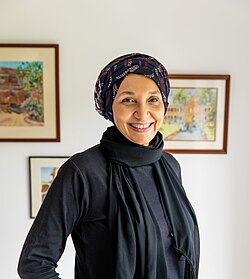Demographics
Population size
This section needs to be updated.(October 2024) |
According to the 2001 UK Census, a total of 10,671 people born in Sudan were living in the UK. [6] This figure is the fifteenth highest migrant population in the UK of all African nations and fifth out of all Arab nations. [6] The only OECD state with more Sudanese-born residents is the United States. [6] A 2006 estimate by the International Organization for Migration suggests that between 10,000 and 25,000 Sudanese are living in London, and anywhere between 3,000 and 18,000 in Brighton. Some 4,000 to 5,000 Sudanese reside in Birmingham and the wider West Midlands region, and the Scottish cities of Glasgow and Edinburgh are home to just over 1,000 Sudanese people each. There are also significant numbers of Sudanese dispersed across the UK in cities and towns including Dundee, Aberdeen, Cardiff, Leeds, Portsmouth, Newport, Bristol, Newcastle upon Tyne, Stoke on Trent, Leicester, Sheffield, Derby, Southampton and Nottingham. [3]
According to the 2011 UK Census, a total of 18,381 people born in Sudan were living in the UK: 16,578 in England, 889 in Wales, [7] 749 in Scotland [8] and 165 in Northern Ireland. [9]
The National Association of British Arabs (NABA) categorises Sudan-born immigrants as Arabs. Based on the 2011 census data, NABA indicates that they are the eighth largest population of British Arabs by country of birth. [10]




